Haz clic aquÍ para leer en español
Patagonia was and is a land of free people. Cowboys wandered with nothing but their horse, bed roll, and herding dogs, working at estancias when they needed income. There is some difference of opinion as to which is which but the most general agreement is that in Argentina they are gauchos and in Chile they are Huasos.
Some people today would tell you they no longer exist. These people would be wrong.
In today’s era of social media and online everything, they are relatively harder to encounter. None we have met so far have an email, much less a Facebook account. Whereas these fiercely independent and unbound cowboys were once often seen, their numbers and way of life is fast disappearing.
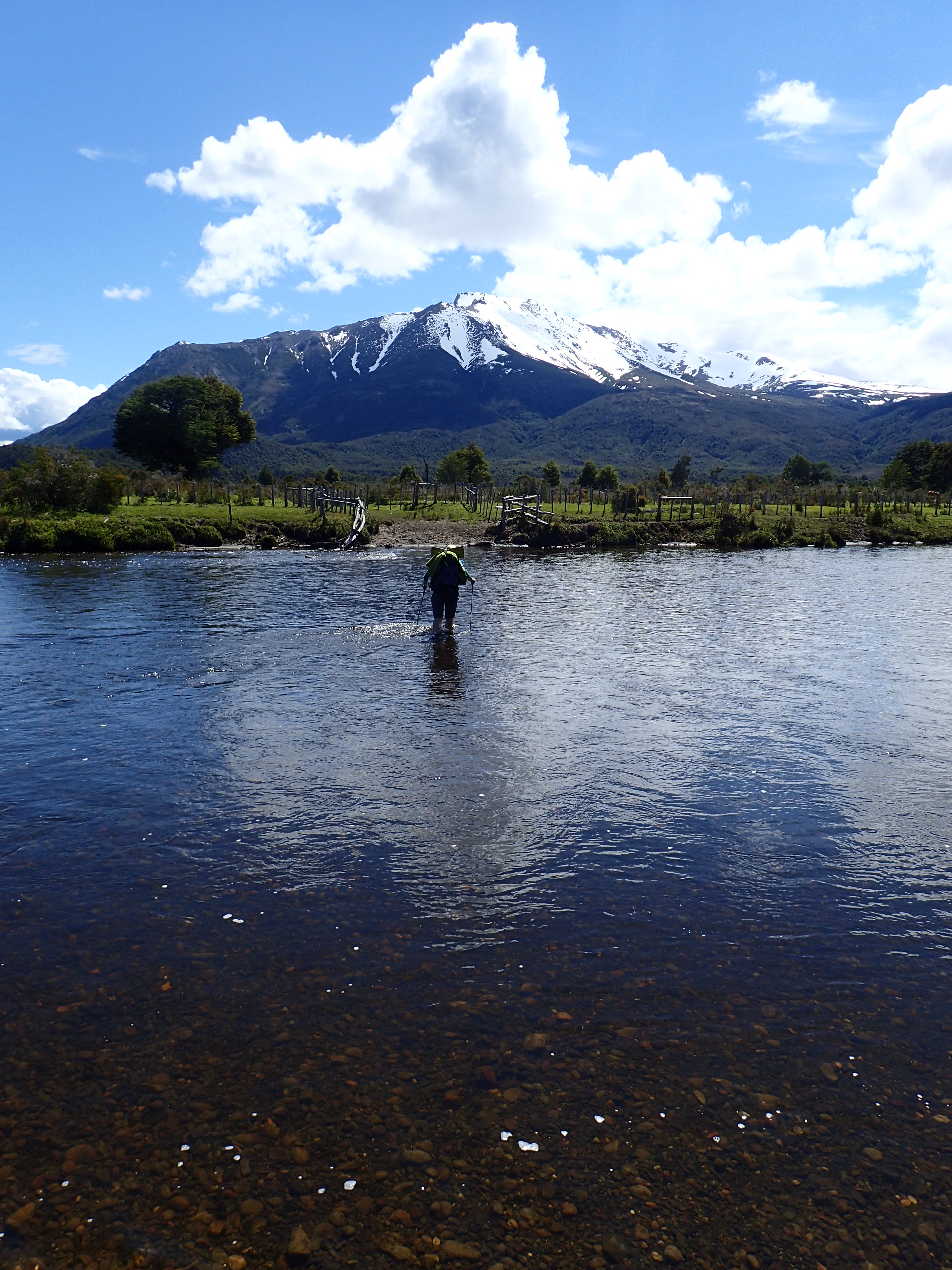
Hiking off the edge of Y-50 scenic dirt road, past the abandoned house of Fresia, the last indian woman, passed away some 5 years ago, beyond where the dirt track dips into the sea and reappears under thick trees on the other side of the bay, over a muddy road propped up on rows of logs laid flat, through a well built corral, and across a wide steady river, there is a fence line.
It was here we sat, assessing our GPS and wringing out our socks, wondering how on this vast tract of remote land we might find the solitary huaso the farmhands at estancia Rio Verde had mentioned would be the only person with any knowledge of the untracked valley we sought to cross. They said he lived somewhere out here, alone with the animals for 7 months.
We were guesstimating where the estancia might be when a noise startled us. Just on the other side of the fence an old man in a worn wool cap and oversized jacket, wearing goat skin chaps and holding a long staff sat atop a thick and nervous brown horse, a pack of dogs circled and whined, some flopped into the shrubs, watching him keenly. He looked down at us quietly.
“Are you Manuel?” I asked. He raised an eyebrow and seemed a bit startled, “we came to find you on behalf of Lusho.” He sat back in the saddle, and repeated the name back with the man’s last name. “He said you might be able to tell us a bit about valle Azocar,” I went on. He turned toward the mighty mountain we were to round, his back to us, pointing with his staff and mumbling in Spanish. I was dismayed, I could neither hear nor understand.
He turned back to us, sizing us up slowly and carefully. “If you are not in a hurry, I invite you to my estancia.” We eagerly accepted and followed him the few kilometers back, rousing with the dogs, the horse pranced anxiously and watched us out of the corner of its eyes, “she is not used to people,” he explained, opening the various gates from horseback.
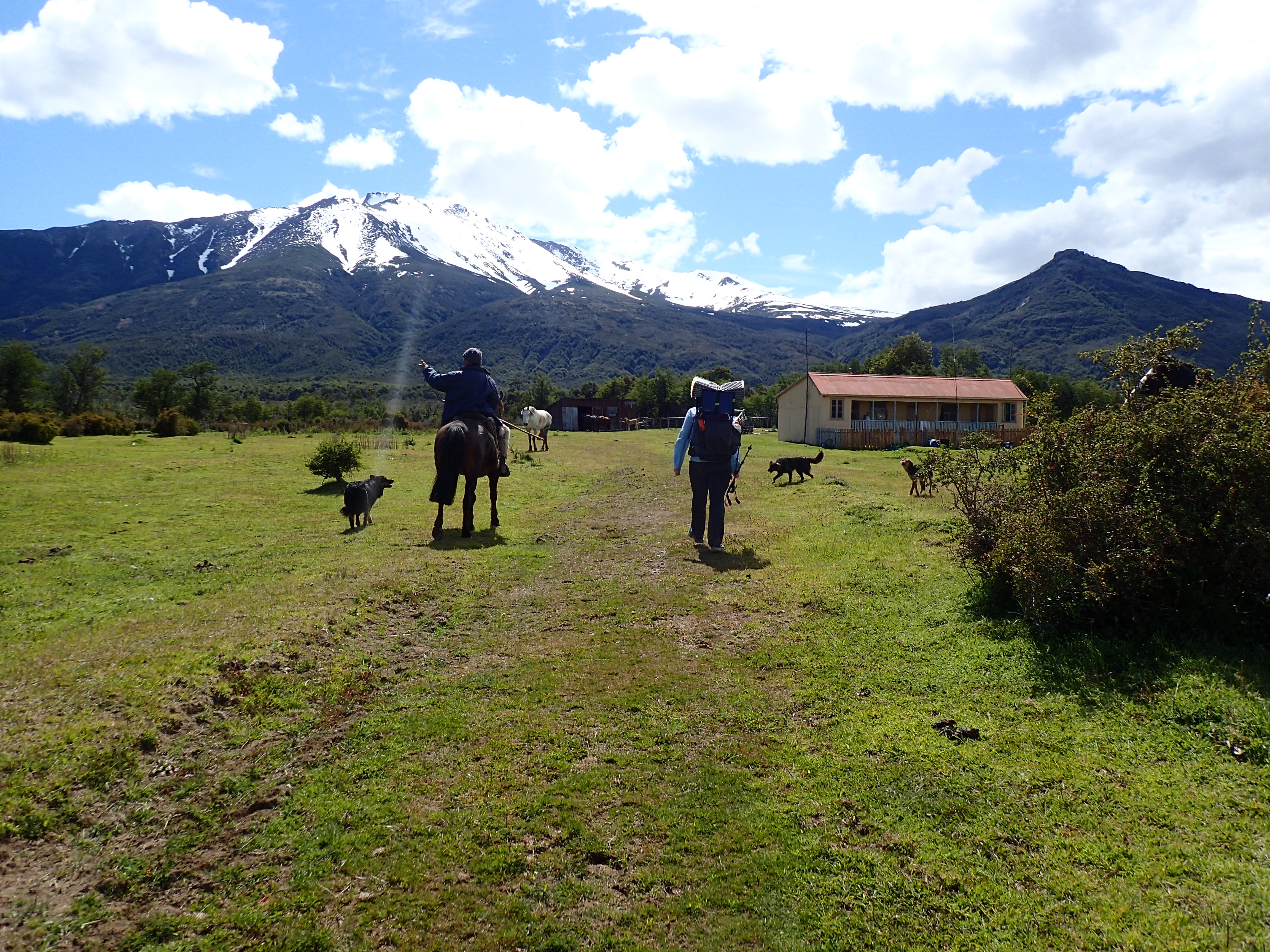
He kept glancing back, as if he thought we might disappear. Curious, he asked, “How did you find me?”
“We didn’t, we had just arrived.”
“How did you know I would be there? I am never on that side of the property. The last few days I have been out there,” he turned and with his staff indicated a mountain across the bay, “how did you know I would be coming back that way?”
“We didn’t.”
He nodded, satisfied and wondering. Rode quietly for a moment, then looked down, “it was meant to be,” he smiled for the first time. I suddenly felt akin. This man knew and recognized the same flow I come out here seeking time and again.
As we opened the gate into the house yard, the horses and the rest of the dogs all came running out to greet him and welcome him back. I felt certain then, this was a good man.
He ushered through the small fence around the house and onto the porch. A young man appeared from one of the 2 bedrooms inside, walking into the simple old kitchen, also looking at us curiously as Manuel washed his hands in the back room.
“You are our first and last guests,” Manuel said, leaning in the doorway, drying his hands. “We have been here since April and next week, we leave,” he put on tea for us, began cutting up bread as the young man lit a cigarette. After some time, in rapid fire Chilean Spanish I heard him explaining to the other man how he had come upon us at the river. The young man accepted without question.
They were kind and patient, unpresuming and attentive. Manuel showed us to a side room, empty except some old mattresses stacked against the wall and a plastic sheet flat in the middle of the room. Sheep wool and long reed grasses protruded from the edges. He pulled out a carefully braided, long leather whip, “I keep it like this so it does not dry out,” he explained. “I thought this room might be better than a tent,” he watched us. Again we happily accepted. He ushered us back into the kitchen, fed us tea and disappeared with a broom. When he took us back to the room, it was swept and tidied. We laid out our mattresses and he chuckled, “you come with your own tiny doll beds.”
We passed the afternoon chatting and joking, watching the horses. Two 3 month old foals amidst the herd of Chilean horses. “Do you know what it is to huaso?” he asked, “the sport of it, I mean?” he asked us, sprinkling spoonfuls of sugar over his old leather mate gourd.
It is the rodeo event held in a medialuna, a corral shaped like a half moon. Two men on horseback pin a bull to the side of the corral using only their horses chests. One rides alongside the bull, the other behind it. Points are allotted according to where your horses chest lands against the bull.
We also discussed the idea of the huaso in general. “People do not think it any more, but really, all Chileans are huasos,” he sucked at the bombilla of his mate. I asked how he had come to identify as a huaso.”I am from Rancagua. My father was a huaso. My grandfather was a huaso. My grandmother was a huaso,” he paused and smiled at me, “she dressed like a huaso and rode horse well.”
He talked about how people this day and age look down on the huasos and make fun of them. Certainly their education is not something found in a book or classroom. Needs and desires are simple. Mate, a horse, open land and freedom.
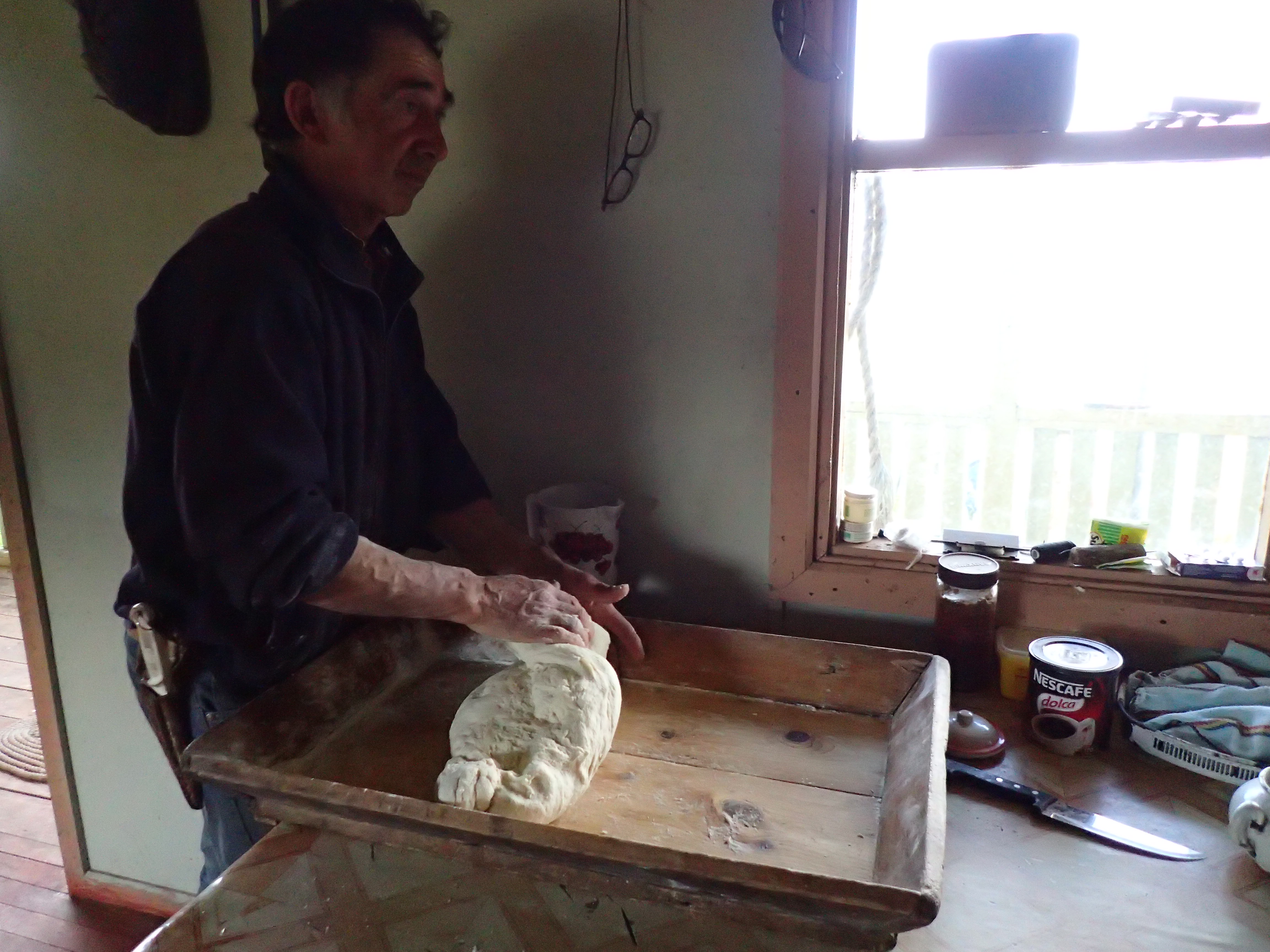
That evening he brought out a long wooden trough and began to knead bread. “My mother taught me. She raised us that there are not jobs specifically for men or women, that we should all be wholly self-sufficient. She would say what if I married a mujer floja, or if my wife took ill.” Her teaching was reflected in the cleanliness and tidiness of the old house.
I made the ultimate sacrifice and offered up one of my chocolate bars as dessert. Both of the cowboys looked at it and shook their heads, “I don’t much like chocolate,” they said. I stared, confused and a bit aghast.
We discussed his “theory of burros.” People who are saddled by bags of money, by their own wealth. That they carry this heavy weight on their backs but what good is gold to a burro. People are so worried with amassing wealth, they miss out on the simple and fulfilling aspects. “Greedy people are like donkeys and what good do these bags of money do them?” he gazed out the window.
All-in-all we commiserated on the joy of simple living. “When I get back to Telhueches, I am going to sell my truck and live with just my horse again,” he smiled and stole a glance at us sideways.
The next morning, we all dragged our feet a bit in preparing for the day. He took one of the dense loaves of bread he’d made the night before, wrapping it in a white cloth and handed it to us. “You have a long journey ahead,” he said. Then, finally, “well ladies, we must get out to the fields to work,” we all stood on the front porch packed and geared up. Us with our with our backpacks, they with their chaps on, horse saddled, and he with an old soda bottle of coffee. “This is all I take to eat all day, a cold bottle of coffee,” he grinned at our packs. We eked out a few more minutes together by posing for a picture, then set off in opposite directions across that vast and remote land.
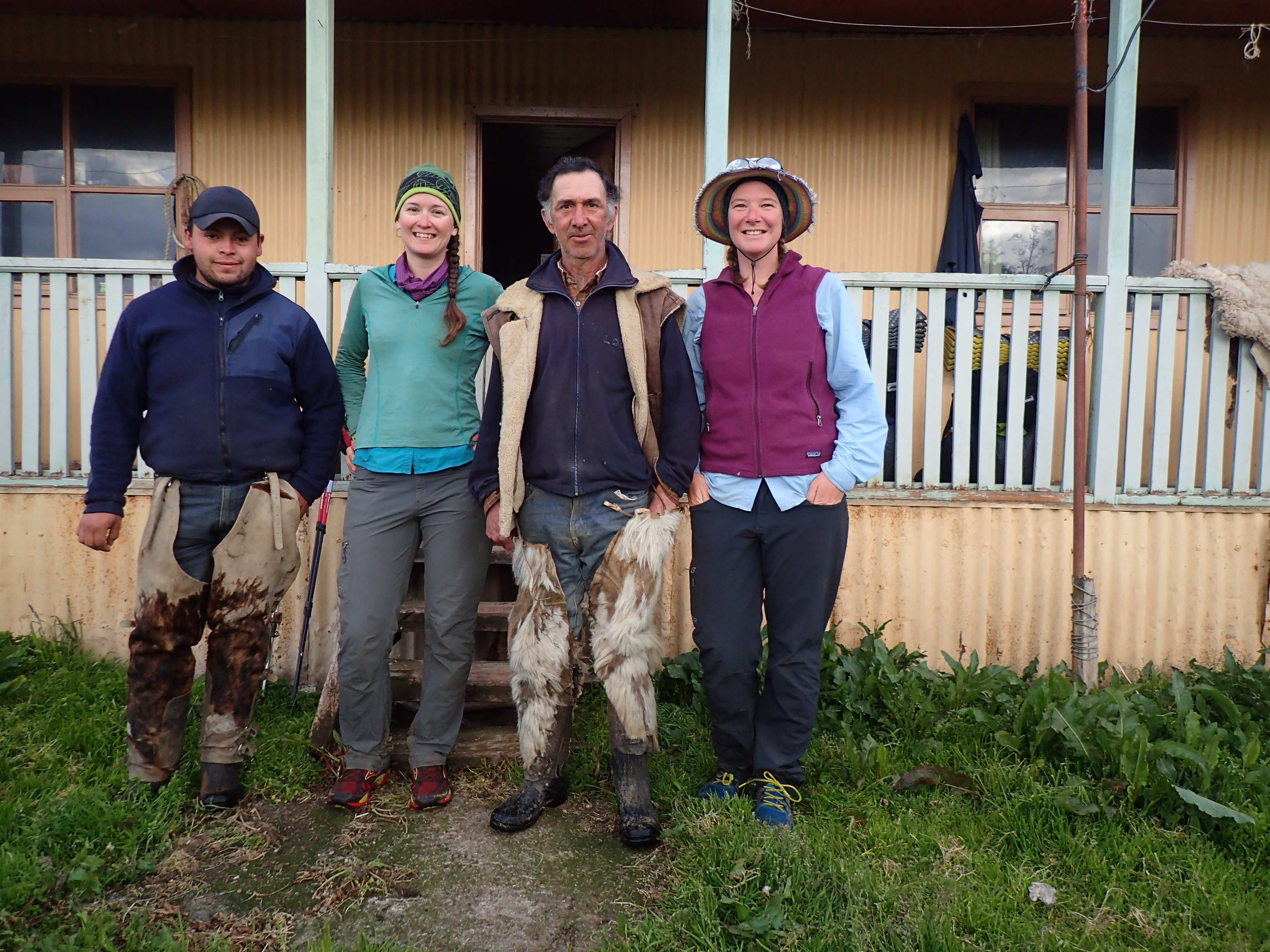
A character encounter we will not soon forget.
A los Huasos no les gusta el chocolate
Traduccion por Henry Tovar
La Patagonia era y es una tierra de gente libre. Vaqueros vagaron sin nada mas que sus caballos, rollo de cama y la cría de perros, trabajando en las estancias cuando necesitaban ingresos. Hay algúna diferencia de opinión en cuanto a cual es cual, pero el acuerdo general es que en Argenita son Gauchos y en Chile son Huasos. Algúnas personas hoy en día dirán que ya no existen. Estas personas serían un error.
En la actual era de las redes sociales y todo en línea, son relativamente dificil de encontrar. Ninguno de los que hemos conocido hasta ahora tiene correo electrónico, y mucho menos una cuenta de Facebook. Mientras que estos vaqueros ferozmente independientes y unidos se ven a menudo una vez, su número y modo de vida está desapareciendo rápidamente.

Haciendo senderismo por el borde de la Y-50 carretera escénica de tierra, más allá de la casa abandonada de Fresia, la última mujer india, falleció hace unos 5 años más allá donde la pista de tierra se sumerge en el mar y reaparece bajo los árboles gruesos en el otro lado de la bahía, sobre un camino fangoso apoyado en las filas de pedazos de corteza planos, a travéz de un pozo construido corral, y atravezando amplío rio, esta la línea de una cerca.
Fue allí donde nos sentamos, evaluando nuestro GPS y escurriendo nuestros calcetínes, pregúntandonos cómo en esta extensión de tierra remota quizás podríamos encontrar al solitario huaso que los campesinos de la Estancia Rio Verde habían mencionado sería la unica persona con algún conocimiento del valle que estamos tratando de cruzar. Ellos comentaron que vive en algún lugar por aquí, solo con los animales por 7 meses.
Estabamos tratando de adivinar donde podría estar la estancia cuando un ruido nos sorprendió. Justo al otro lado de la cerca un anciano con un gorro de lana gastado y una chaqueta de gran tamaño, vistiendo chaparajos de piel de cabra y sosteniendo un bastón largo se sentó encima de un caballo marrón espeso y nervioso, un grupo de perros en círculos y aullando. Algúnos se lanzaron a los arbustos, mirándolo intensamente. El nos miro a nosotras de forma calmada.
´´´¿eres tu Manuel?´´, pregunté. Él levantó una ceja y parecia un poco sorprendido, ´´vinimos a encontrarlo por parte de Lusho´´. Se echó hacia atrás en la silla, y repetimos el nombre de nuevo con el apellido del hombre. ´´Dijo que podría ser capaz de decirnos un poco sobre el Valle Azocar´´. Continué. Se volvió hacia la montaña poderosa que teíamos que bordear, de espaldas a nosotros, señalando a su personal y murmurando en español. Estaba consternado, yo no podía oir ni entender.
Se volvió de nuevo a nosotras, midiendonos lenta y cuidadosamente. ´´si no estan apuradas, las invito a mi estancia´´. Aceptamos con entusiasmo y lo seguimos pocos kilómetros atras. Exaltado con los perros, el caballo relinchaba con ansiedad y nos observaba con el rabillo de sus ojos, ´´ella no esta acostumbrada a las personas´´, nos explicó, abriendo varias puertas montando en el caballo.

Siguió mirando hacia atrás, como si pensara que podíamos desaparecer. Curioso, preguntó:
´´¿como me han encontrado?´´
´´nosotras no lo hicimos, acabamos de llegar´´.
´´¿como sabian que estaria alli?´´ nunca estoy en ese lado de la propiedad. Los últimos días he estado por ahí, se volvío y con su personal indicaron una montaña través de la bahía, ´´¿como sabían que iba a volver por esa vía?´´
´´no lo sabiamos´´
Él asintió satisfecho y se preguntandose. Montó en silencio por un momento, y luego miró hacia abajo, ´´estaba destinado a ser´´, sonrió por primera vez. De repente me sentí afín. Este hombre sabía y reconocía la misma vibra que yo aquí afuera, buscando una y otra vez.
Al tiempo que abrimos la puerta del hacia el patio de la casa, los caballos y el resto de los perros salieron a saludarlo y a darle la bienvenida. Estaba segura entonces, de que era un buen hombre.
Nos hizo pasar a través de la pequeña valla alrededor de su cas y hacía el porche. Un joven apareció en una de las dos habitaciones en el interior, entrando en la simple y vieja cocina, también nos miró con curiosidad mientras Manuel se lavó las manos en la trastienda.
´´ustedes son nuestras primeras y ultimas invitadas´´, dijo Manuel, apoyado en la puerta, secándose las manos. ´´hemos estado aquí desde Abril y la semana siguiente, nos vamos´´. El puso té para nosotras, empezó a cortar el pan al tiempo que el joven encendia un cigarrillo. Después de algún tiempo, en Español Chileno Rápido lo escuché explicar al otro hombre cómo habíal llegado a nosotras en el rio. El joven aceptó sin lugar a dudas.
Ellos fueron amables y pacientes, modestos y atentos. Manuel nos enseño una habitación lateral, vacia, exepto algúnos viejos colchones apilados contra la pared y un piso de lámina de plastico en el medio de la habitación. Lana de oveja y altas hierbas de caña sobresalian de los bordes. Él sacó un latigo de cuero cuidadosamente trenzado, ´´lo mantengo asi para que no se se seque´´. Explicó. ´´creo queesta habitación podría ser mejor que una tienda de campaña´´. Nos observaba. Una vez más nos encantaría aceptó. Nos hizo pasar de nuevo a la cocina, nos dio de comer, té y luego desaparecio con una escoba. Cuando nos llevó de vuelta a la sala, estaba barrida y arreglada. Ubicamos nuestros colchones y se rió entre dientes, ´´ustedes llegan con sus propias camas de pequeñas muñecas´´.
Pasamos la tarde charlando y bromeando, viendo los caballos. Dos potros de 3 meses en medio de la manada de Caballos Chilenos. ´´¿saben ustedes lo que es un Huaso?´´, preguntó. ´´¿el deporte me refiero?´´ nos preguntó, poniendo algunas cucharadas de azucar a su viejo mate de cuero de calabaza.
Es el evento de rodeo celebrado en medialuna, un corral en forma de media luna. Dos hombres a caballo empujan a un toro al otro lado del corral usando solo los pechos de sus caballos. Un corre junto al toro y el otro detrás de el. Los puntos se asignan de acuerdo a donde tocan los pechos del caballo al toro.
También hablamos sobre la idea del Huaso en general. ´´la gente no piensa en ello ahora, pero el realidad, todos los Chilenos son Huasos´´, chupaba la bombilla de su mate. Le pregunté como habia llegado a identificarse como un Huaso. Mi abuela era un Huaso, ´´hizo una pausa y sonrió´´, ´´se vestia como un Huaso y montaba a caballo muy bien´´.
Habló de cómo la gente en este día y edad mira hacia abajo en los huasos y se burlan de ellos. Ciertamente, su educación no es algo que se encuentra en un libro en un aula. Necesidades y deseos son simples. Aparearse, un caballo tiene tierra abierta y la libertad.

Esa tarde sacó un largo canal de madera y comenzó a amasar el pan. ´´mi madre me enseñó. Ella nos planteó que no hay puestos de trabajo especificamente para hombres o mujeres, que todo deberíamos ser totalmente autosuficientes. Ella diría que si me casaba con una mujer floja, o si mi esposa enfermaba. ´´su enseñanza se reflejaba en la limpieza y orden de la vieja casa´´.
Hice el ultimo sacrificio y ofrecí una de mis barras dechocolate como postre. Ambos vaqueros me miraron lo miraron y sacudieron sus cabezas. ´´no nos gusta el chocolate´´. Dijeron. Me quedé mirando. Confundida y un poco horrorizada.
Hablamos de su ´´teoría de los burros´´. Las personas que están abrumadas por las bolsas de dinero, por su propia riqueza. Que llevan este peso pesado en la espalda. Pero que tan bueno es el oro para un burro. Las personas que estan preocupadas con la acumulación de riqueza, se pierden los aspectos simples y satisfactorios. ´´ la gente codiciosa son como burros y que bien le hacen estas bolsas de dinero a ellos?´´ miraba por la ventana.
Todo- en- todo, compadecimos en el disfrute de la vida simple. ´´cuando vuelva a telhueches, voy a vender mi camión y a vivir sólo con mi caballo de nuevo´´. Sonrió y echó una mirada hacia nosotras.
A la mañana siguiente, todos arrastramos nuestros pies en la preparación para el día. tomó una de las densas barras de pan que había hecho la noche anterior, envolviendola en un paño blanco y nos lo entregó, ´´ustedes tienen un largo camino por delante´´, dijo. Entonces, finalmente, ´´así damas , tenemos que salir al campo a trabajar´´. Todos nos quedamos en el porche para empacar y prepararnos. Nosotras con nuestras mochilas, ellos con sus chaparajos, caballos ensillados, y él con una vieja botella de refrescos de café. ´´esto es todo lo que llevo a comer todo el día, una botella fría de café´´. Sonrió a nuestros paquetes. nosotros ganamos unos minutos más junto al posar para una imagen, a continuación, pusimos en marcha en direcciones opuestas a través de esa tierra vasta y remota.

Un encuentro con un personaje que no olvidaremos prontamente.
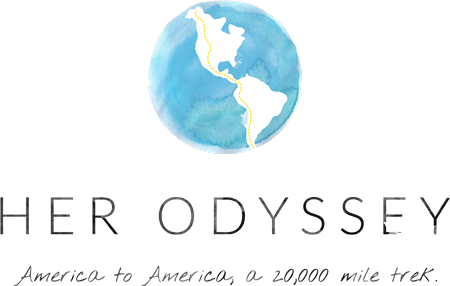

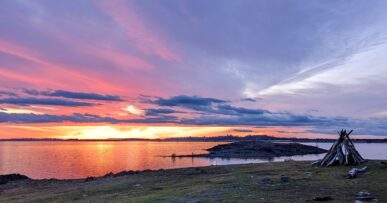
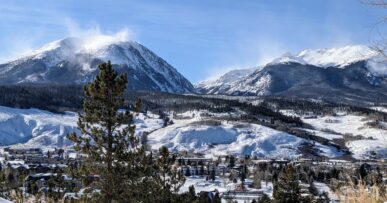
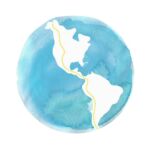

Comments (10)
I love your stories! Will you write one for our blog soon?
Hi Lizzy, just catching up on tech stuff. Sure thing! We are sure loving our Hyperlite Mountain Gear!
Thank you so much for your brilliant word portraits. What an excellent adventure. Happy birthday!
Enjoyed the read of your encounter and have been following every post you’ve made !
Gary in Nova Scotia, Canada
Such a fantastic character! It’s wonderful you were able to spend time with him. I can’t wait to read the next chapter!
What a fantastic character! You’re so fortunate to have spent time with him. I can’t wait to read the next chapter!
You made me feel like I was there with you. Thank you for bringing us along on your serendipitous meeting with Manuel. It is an encounter your readers will not soon forget either.
All I can say is wow, meeting someone like that is a treasure. Here’s hoping you meet many more Manuel’s on your journey. And happy birthday by the way!
Truly you are blessed…
Pingback: Gauchos and Huasos – Her Odyssey